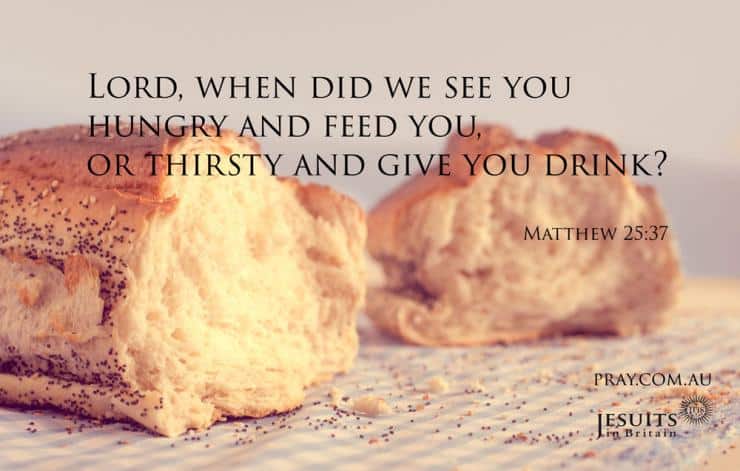
From The Interpreter’s Bible, 1951. The commentary concerns the passage in Matthew 25 in which the Lord turns to both the ones on his right and on his left to speak about being thirsty, being a stranger, being sick, being in prison. Note that both the ones on his right as well as the ones on his left are utterly surprised that those people had any connection to the Lord. The Interpreter’s Bible makes two comments, one about the blessed and one about the condemned. See below for the commentary. I will list first the blessed and then the condemned.
But the true saint forgets himself in love. So it does not occur to him that there is any splendor in him. When Elizabeth Fry reached heaven she was doubtless surprised to see the mighty, acclaimed among men, waved aside, and double surprised when Jesus said to her, “Come, … blessed of my Father” (25:34). Doubtless she replied, “I often visited the prisoners in Newgate, but when did I see You there?” For even the saint, despite his insight, does not realize the closeness of that mysterious bond by which everyone, especially the needy is bound to Christ.
Commentary on the blessed.
The unloving were so callous, their religion so perfunctory, that they never thought of Jesus as being linked with men in love, or as asking from anyone any forthright deed of compassion. The unloving were not ignorant concerning Jesus. Apparently they knew him to whom they spoke. But they had been so long unloving that their faith was now not a faith, but only a ritual observance and a correct creed. They had separated Jesus from the doings of daily life. … No word could more sharply underscore the callousness that afflicts the loveless man, and his resultant blindness, than the question addressed to Jesus, “When did we see thee hungry?”
Commentary on the condemned
Normally, I would have a commentary at this point. However, I think the above quotes speak for themselves. So, let me finish with the liturgical phrase, “Let us attend!”




Leave a Reply